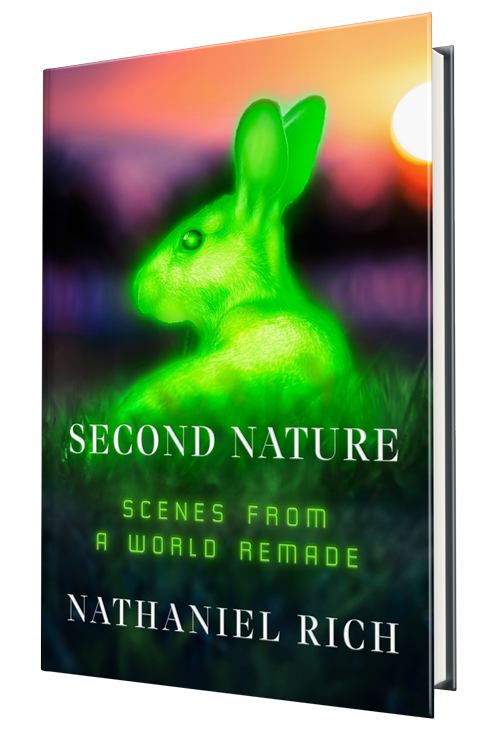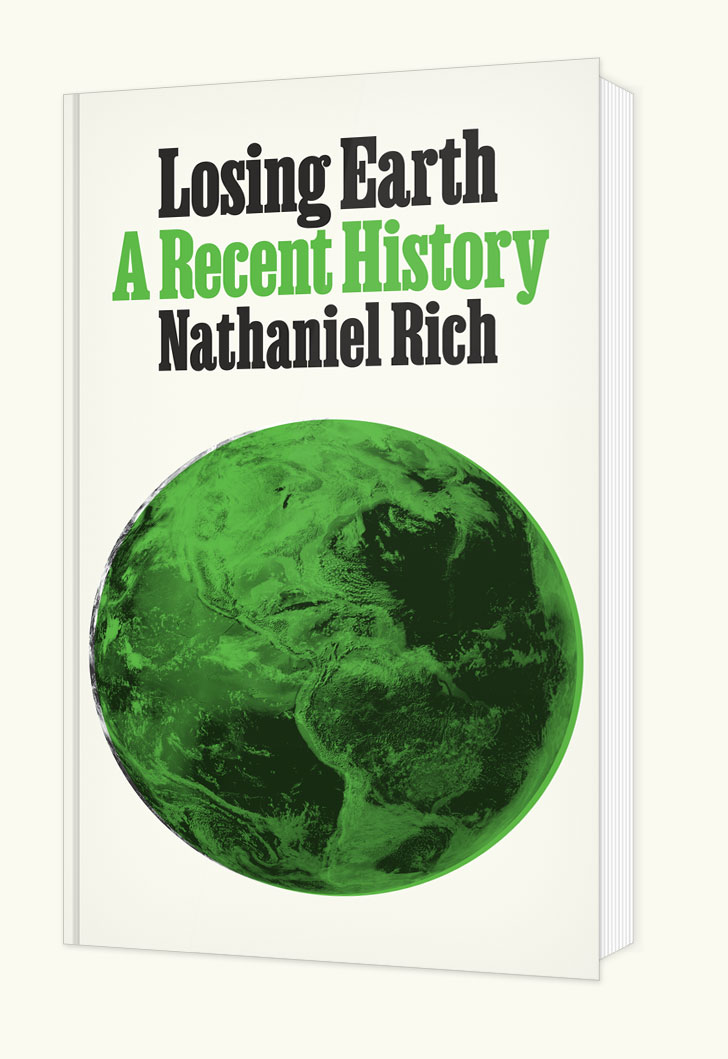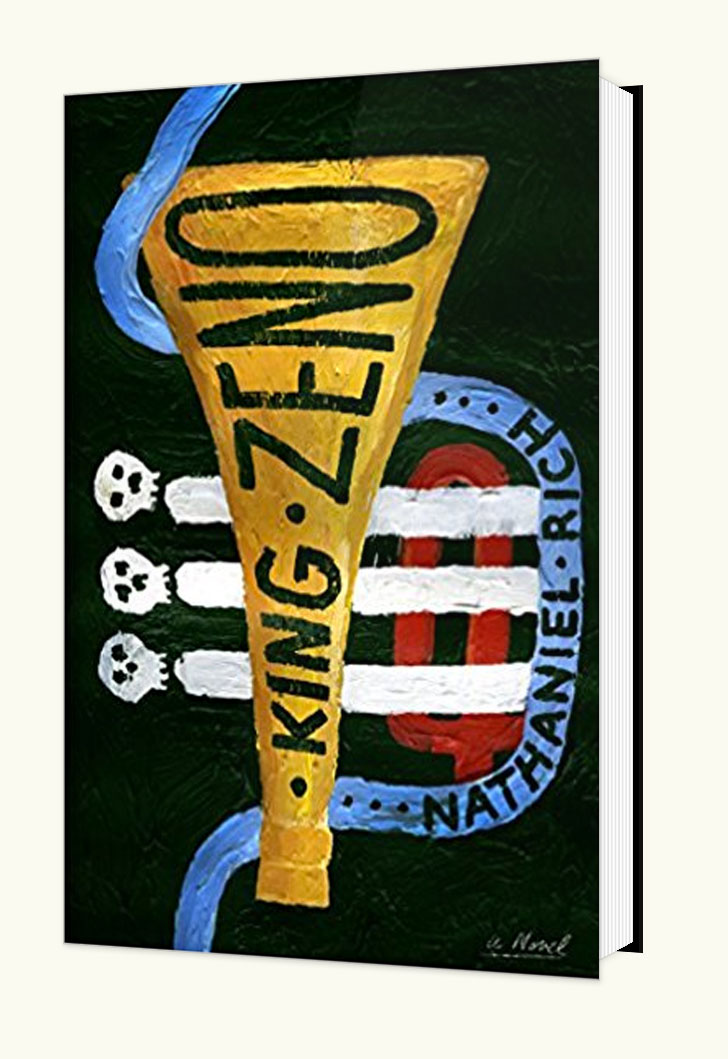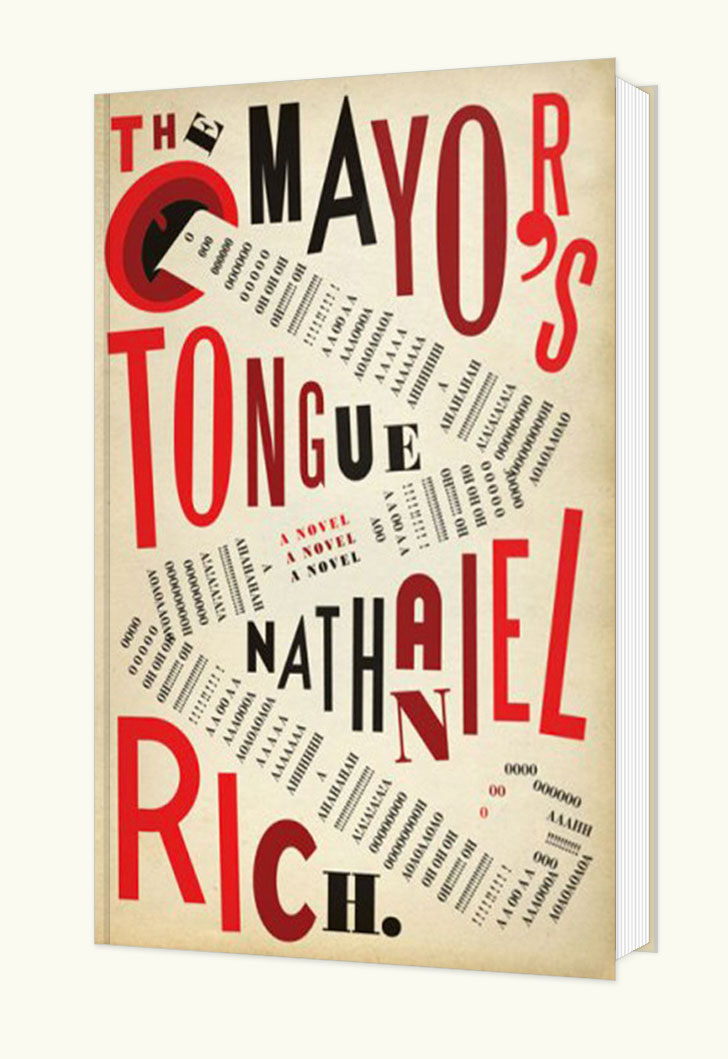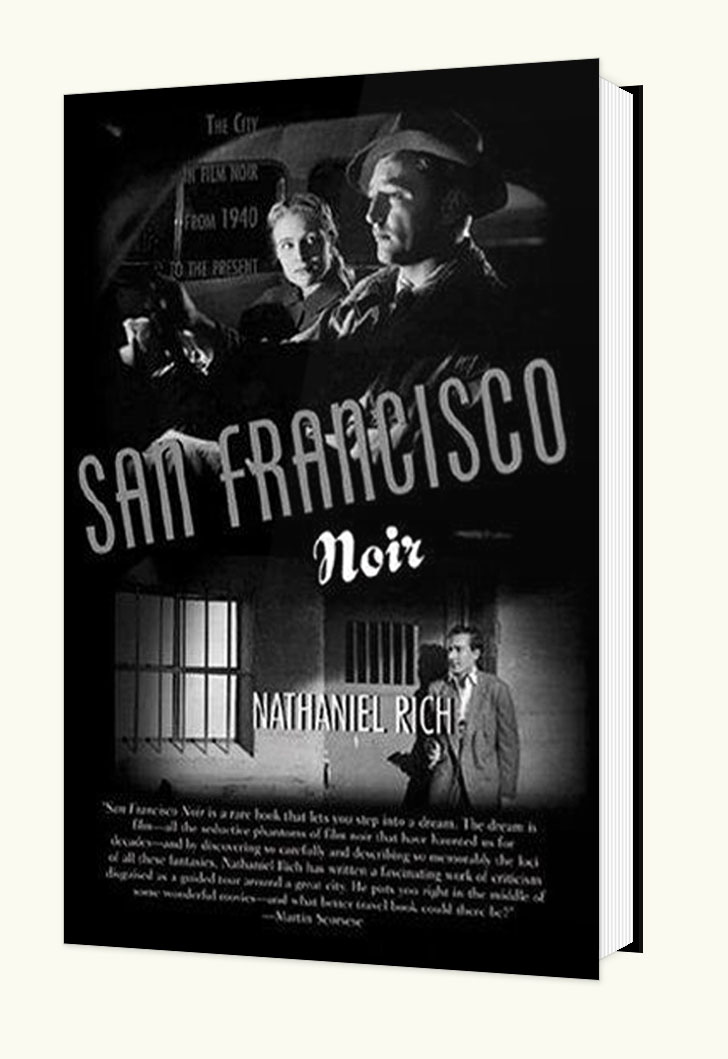A New York Times Book Review Editors’ Choice, San Francisco Chronicle Lit Pick, Paris Review Staff Pick. A January Pick by Salon, Town and Country, Southern Living, and LA Magazine
“Sprawling but speedy…a rich, contemporary canonization of the Crescent City at the turn of the century.”
—Sloane Crosley, Vanity Fair
“A novel that roils with the inseparable energies of creation and destruction…Rich, a resident of New Orleans, throws his arms wide open to history and to the city…The novel, like a city, somehow coheres, as Rich never loses control of the riotous raw material. The close third-person point of view rotates among three central figures, providing pattern and the promise of convergence; the mysterious ax murders serve as a narrative through-line; the canal exerts centripetal and allegorical force; and the extraordinary American yearning of the characters, as in Stephen Millhauser’s ‘Martin Dressler’ or E. L. Doctorow’s ‘The Waterworks,’ is a constantly propulsive force…This is a novel with a high body count, but it has far too much energy ever to feel morbid.”
—Chris Bachelder, The New York Times Book Review
“King Zeno is the New Orleans novel we’ve been waiting for…It reminded this reviewer of John Dos Passos’ U.S.A. trilogy, with its clever melding of real and fictional events, its snippets of newspaper articles and astonishingly memorable characters.”
—BookPage
“Rich smears his lively prose with enough mud, blood, sweat and Oysters Vizzini grease that readers should keep a stack of napkins handy…Rich pushes the story ahead at a ragtime pace, alternating passages of florid description – particularly when Izzy is in one of his musical reveries – and bare-knuckle action…’King Zeno,’ a novel of underground forests, towns within towns and recurring nightmares suddenly come to life, is a page-turning reminder that in this venerable city, some buried secrets aren’t meant to stay that way.”
—Houston Chronicle
“Like a meal at one of New Orleans’ famed eateries, Nathaniel Rich’s new novel, ‘King Zeno,’ offers a groaning board of tasty literary treats…a gritty, panoramic portrait of the Big Easy…full of sharply rendered minor characters, gallows humor and finely observed descriptions…a remarkable achievement.”
—The Washington Post
“Rich tells a complicated story with great skill and style, sketching the mental lives of a dozen major characters and bringing a vanished era to colorful and realistic life.”
—The Wall Street Journal
“Nathaniel Rich has a gift for depicting catastrophe…He is adept at conjuring details that tip a merely tense scene into one of horror…at capturing the ragged magnificence of the era’s musicians…King Zeno is an arresting addition to Rich’s grievous corpus.”
—Matt Sturrock, The Times Literary Supplement
“Rich uses music, race, and historical details in ways that will likely spark comparisons to E.L. Doctorow’s multifaceted Ragtime. It’s a nicely paced detective thriller, clever on corporate corruption and police procedure…marked by offbeat humor and up-tempo writing.”
—Kirkus Reviews (starred review)
“[A] vibrant tale of music, madness, and murder.”
—Entertainment Weekly
“[A] roiling genre-blender…combining a lyrical impressionistic style with a sure-handed grasp of the historical moment…a heady mix of literary thriller and high-end historical fiction.”
—Booklist
“[In] this dark, panoramic thriller…Rich excels at character development, painting vivid, interior portraits.”
—The Seattle Times
“Fans of historical crime fiction: Look no further than King Zeno…With its memorable cast of character and historical flourishes, King Zeno is a winner.”
—Bookish
“Rich’s spirited third novel contrasts the luminous early years of jazz with a number of particularly American darknesses…the New Orleans setting is well-drawn and memorable and Rich excels at immersing the reader in the narrative.”
—Publishers Weekly
“In this deft historical thriller, Rich seamlessly blends fact with fiction as three characters attempt to secure their legacies in the shadow of a gruesome murder, with post-World War I New Orleans as the backdrop…The period details—most taken directly from the historical record—are expertly deployed…[an] absorbing…brainy thriller.
—Library Journal
“Wildly imaginative…an artful blend of humor, suspense, and noir.”
—The National Book Review (Hot Book of the Week)
“Meticulously timed and plotted . . . Unforgettable characters . . . To read King Zeno is to see the city through Rich’s sharply observant yet loving eyes . . . It takes time to learn a city, to love it, to make a mark on it, and Rich has done that in King Zeno.”
—Susan Larson, The Advocate (New Orleans)
“An intriguing interplay between lurid action and a contemplative gaze across the millennia…gives King Zeno its distinctive tone.”
—The Boston Globe
“Rich knows well the city, its people and the racial hierarchies that underpin their life and this story…Rich has written a nicely paced detective thriller, with a twist, propped up by the realities of a society that is racist, yet multicultural in many ways. His offbeat humor and lively writing make King Zeno a good read on both levels.”
—Chris Smith, Winnipeg Free Press
“Those who have studied jazz history will find themselves right at home in Nathaniel Rich’s new novel, King Zeno…Rich, who lives in New Orleans, has given his city yet another reason for local celebration.”
—Robert Fulford, The National Post (Canada)
“Action packed . . . Rich has a feel for New Orleans life.”
—San Francisco Chronicle
